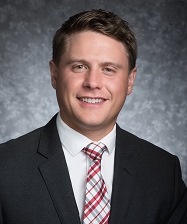Florida Supreme Court Curbs Discovery of Referral Relationship Between Plaintiff’s Counsel and Treating Physicians
Florida appellate courts have long recognized that when a plaintiff’s attorney (or law firm) maintains a referral relationship with a treating physician, the defense should be entitled to delve into that relationship through discovery. Financial arrangements of this sort create a potential for bias that the jury is entitled to hear. This rule also has roots in fairness, since plaintiffs are entitled to similar information with respect to the association between defendants, defense counsel, and their experts. See Allstate Ins. Co. v. Boecher, 733 So. 2d 993 (Fla. 1999).
Worley Tilts the Scale in Plaintiff’s Favor
On April 13, 2017, the Florida Supreme Court changed this dynamic and tilted the balance in favor of plaintiffs in the Worley v. Cent. Fla. Young Men’s Christian Ass’n Inc. decision. While discovery directed to defense counsel regarding the extent of their relationship with a particular expert apparently remains permissible, the financial relationship between a plaintiff’s treating physician and his or her lawyers is off-limits. According to the Florida Supreme Court, the discovery of the latter type:
“would only serve to uncover evidence that, even if relevant, would require the production of communications and materials that are protected by attorney-client privilege.”
Worley Facts
Worley started as a routine trip-and-fall. Discovery soon became contentious, however, when defense counsel questioned plaintiff whether she was referred to her treating physicians by counsel, Morgan & Morgan. Plaintiff did not answer and the defense responded with discovery directed to the plaintiff’s treating physicians in an effort to establish a referral relationship with Morgan & Morgan. The trial court sustained plaintiff’s objection to the referral question at her deposition but ordered her to produce documents reflecting any relationship between Morgan & Morgan and her treating doctors. Additionally, the trial court ordered that “[i]f the health care provider doesn’t have it, then the law firm is to produce [these materials.]”
Plaintiff appealed to the Fifth District, who affirmed the trial court regarding the document requests and further found “it was appropriate for [defendant] to ask [plaintiff] if she was referred to the relevant treating physicians by her counsel or her counsel’s firm.”
Florida Supreme Court Decision
The Florida Supreme Court reversed on both issues. As to the direct inquiry posed to plaintiff regarding whether she had been referred to her doctor for treatment, the Court explained that this invades on the core protection of the attorney-client privilege, which “is an interest traditionally deemed worthy of maximum legal protection.” Such questioning is impermissible even if asked out of a perceived necessity to discover bias between plaintiff’s counsel and a treating physician.
Turning to the written discovery, the Supreme Court made an equally broad pronouncement that this avenue of inquiry is now equally impermissible:
“Even in cases where a plaintiff’s medical bills appear to be inflated for the purposes of litigation, we do not believe that engaging in costly and time-consuming discovery to uncover a ‘cozy agreement’ between the law firm and a treating physician is the appropriate response.”
The Court expressed concern that this type of discovery, in addition to seeking disclosure of attorney-client materials, could have “a chilling effect on doctors who may refuse to treat patients who could end up in litigation out of fear of becoming embroiled in the litigation themselves.”
Practice Pointer
While Worley has circumscribed the use of civil discovery to investigate the financial relationship between a law firm and treating physicians, not all is lost. Importantly, the Florida Supreme Court appears to have left undisturbed the general rule that evidence of a referral relationship can be admissible to show bias. It is now on the defense bar to imagine creative ways to establish this relationship outside of traditional discovery.
About the Author
Kyle Dudek is an associate in the Tort & Insurance Litigation division and concentrates his practice in the defense of tort claims.
Kyle has experience in the courtroom, having served as a law clerk for the Honorable G. Steve Agee in the U.S. Court of the Appeals for the Fourth Circuit, for the Honorable James C. Cacheris in the U.S. District Court for the Eastern District of Virginia and for the Honorable Andrew Baxter in the U.S. District Court for the Northern District of New York. Before clerking, Kyle worked as an associate for a law firm in Northern Virginia.
Kyle graduated magna cum laude from George Mason University School of Law, where he served on the Articles Committee for the Journal of Law, Economics & Policy. He was also an active member of the business law society, first as the treasurer and then president. Kyle can be reached at kyle.dudek@henlaw.com or by phone at 239-344-1237.



